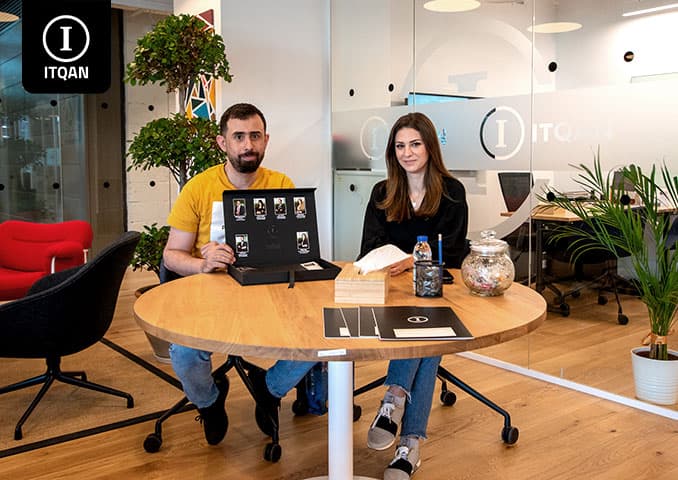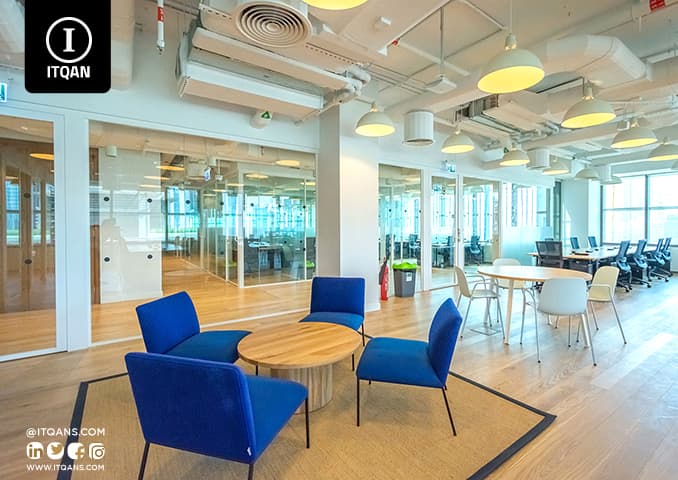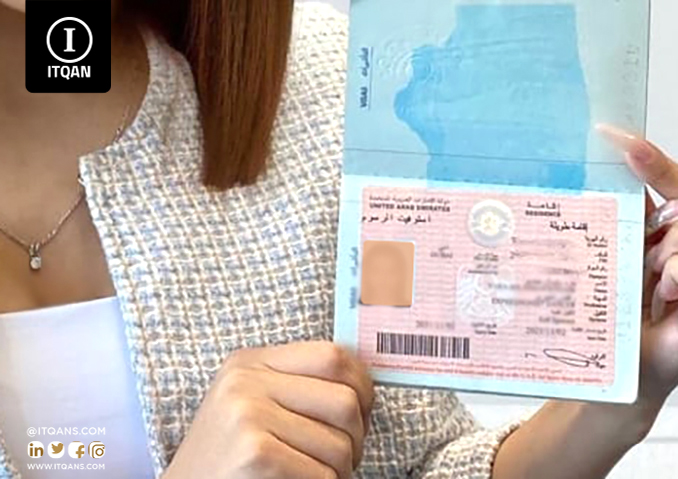Opening a company in Dubai is a strategic step that reflects the expansion ambitions of entrepreneurs and investors from around the world. Dubai is one of the world’s leading business destinations, thanks to its dynamic economic environment, advanced infrastructure and flexible regulatory procedures. From choosing the type of business activity, to obtaining the necessary licenses, to establishing and registering the company, the process of opening a company in Dubai requires careful planning and a deep understanding of the procedures followed. In this article, we will review the basic and important steps that must be followed to open a company in Dubai , including the benefits that the city provides to investors and the most prominent challenges they may face during the establishment process.

How to open a company in Dubai
جدول المحتوى
ToggleHow to open a company in Dubai
Opening a company in Dubai requires following specific steps to ensure compliance with local regulations and success. Here’s how to open a company in Dubai:
- Determine the type of company and business activity : Start by determining the type of company you want to create (such as a limited liability company, private equity company, or sole proprietorship) and the business activity you will be doing. This will help you choose the correct classification and necessary licenses.
- Choosing a company location : Select a company location based on your business and requirements. You can choose between free zones in Dubai or non-free zones. Each option has its own advantages and requirements.
- Trade Name Registration : Choose a distinctive trade name for your company and check its availability through the Dubai Department of Economic Development. Make sure the name complies with local laws and does not conflict with other brand names.
- Prepare documents : Prepare the required documents, which usually include a copy of the passport, residence visas, and the lease contract for the company’s headquarters. You may also need to sign agreements with partners or investors.
- Submit a license application : Submit an application for a commercial license from the Department of Economic Development or the responsible authority in the free zone you have chosen. This includes submitting all required documents and paying the specified fees.
- Opening a bank account : Open a bank account in the name of the company in one of the approved banks in Dubai. You will need this account to manage financial operations and business transactions.
- Company registration : After obtaining the license, register your company with the local authorities and obtain a commercial number. You may also need to register your employees with the relevant authorities.
- Completing legal procedures : Make sure that all other legal requirements such as social insurance and taxes are met.
By following these steps, you can successfully establish a company in Dubai and take advantage of the business opportunities the city has to offer.
Types of companies in the free zone
Here is a table showing the main types of companies in the Dubai Free Zone, with some basic details about each type:
| Company type | Description | Foreign ownership | the site | Minimum capital | License required |
|---|---|---|---|---|---|
| Limited Liability Company (LLC) | A limited liability company protects shareholders from personal liability. | It could be 49% for the local partner and 51% for the foreign investor. | It can be registered in free or non-free zones. | Varies depending on activity and details. | Commercial license from the Department of Economic Development (DED). |
| Private joint stock company | A company that can issue shares and has a complex management structure. | Foreigners can fully own property in free zones. | It can be registered in free or non-free zones. | Varies depending on activity. | A commercial license from the Department of Economic Development (DED) or the responsible body in the free zone. |
| Sole proprietorship | Owned and operated by one person. | The owner can be a foreigner in free zones. | It can be registered in free or non-free zones. | There is usually no minimum. | Commercial license from the Department of Economic Development (DED). |
| Subsidiary company | A subsidiary of a parent company, it can be a limited liability company or a private joint stock company. | It can be 100% owned by foreigners in free zones. | It can be registered in free or non-free zones. | Depends on the parent company. | A commercial license from the Department of Economic Development (DED) or the responsible body in the free zone. |
| Limited Liability Company (LLC) in free zones | A branch of a limited liability company, which enjoys tax exemptions and commercial facilities. | A foreign investor can own 100%. | Free zones only. | Varies depending on the free zone and activity. | A license from the responsible authority in the free zone. |
| Non-profit company | Aimed at achieving social or charitable goals rather than making profits. | There are no restrictions on nationality. | They can be registered in different regions depending on the activity. | Varies according to activities. | License from the relevant authorities according to the activity. |
This table shows the types of companies in Dubai and how they differ in terms of ownership, location, and licensing requirements.
Advantages of opening a company in Dubai
Establishing a company in Dubai offers many advantages that make it a favorite destination for investors and businessmen from all over the world. Here are the most important advantages of establishing a company in Dubai:
- Favorable business environment : Dubai provides a modern and flexible business environment, with regulatory facilities aimed at supporting the growth and sustainability of companies. The government is always seeking to improve the investment environment and provide support to investors.
- Tax exemptions : Dubai offers attractive tax exemptions, such as not imposing corporate income tax on most commercial activities, which enhances the profitability of companies.
- Full Foreign Ownership : In free zones, foreign investors can own 100% of a company’s shares, providing them with complete control without the need for a local partner.
- Advanced infrastructure : Dubai is characterized by a high-level infrastructure that includes transportation, ports, and airports, which contributes to facilitating commercial operations and global trade.
- Easy access to global markets : Dubai’s strategic location makes it a major connecting point between the markets of the Middle East, Asia and Europe, which facilitates access to international clients and partners.
- Political and economic stability : Dubai enjoys political and economic stability, which enhances investor confidence and provides a safe environment for investing money.
- Technology and Innovation : Dubai provides an encouraging environment for innovation and technology, with significant investments in digital projects and artificial intelligence, which helps companies keep pace with the latest technological developments.
- Incentives and facilities : Dubai offers a range of incentives and facilities to emerging, small and medium-sized companies, such as financial grants, financing, and advisory services.
- Diversity of investment opportunities : There are various investment opportunities in Dubai in different fields such as real estate, technology, trade, and financial services, allowing investors to choose the sector that suits them.
- Live and work : Dubai provides a high quality of life and distinguished services for living and working, with an international, multicultural community.
These features make Dubai an ideal destination for establishing a business, which enhances its attractiveness as a global commercial center.
Conditions for opening a company in Dubai
Establishing a company in Dubai requires compliance with a number of conditions and requirements to ensure compliance with local laws. Here are the most important conditions to take into account:
- Choose the type of company : Select the type of legal entity you wish to establish, such as a limited liability company (LLC), private equity company, or sole proprietorship. Each type has special requirements.
- Trade name : A trade name must be chosen that complies with local laws and reflects the nature of the company’s activity. The name must not be similar to other registered trade names.
- Address and Location : You need to specify the address of the company headquarters and submit a lease contract for the workplace. The location can be chosen in a free zone or a non-free zone depending on your business activity.
- Commercial License : Obtain a license from the Department of Economic Development (DED) or the responsible body in the free zone of your choice. This requires submitting the necessary documents and paying the prescribed fees.
- Required documents :
- Copies of passports of interested parties (founders and directors).
- The company’s articles of incorporation and a statement of the company’s terms and conditions.
- Lease contract for the company’s headquarters.
- Personal photos of managers and investors.
- Partners and investors : In the case of non-freelance companies, you may need a local partner who owns a percentage of the company’s shares (51% of the shares in LLCs). In free zones, the company can be entirely foreign-owned.
- Minimum Capital : Capital requirements vary depending on the type of company and business activity. Some companies may require a minimum amount of capital as set by laws.
- Additional insurances and licenses : You may need to obtain additional licenses based on the type of business, such as health or industrial licenses. Also, there may be requirements for social and health insurances for employees.
- Tax registration : Registration in the tax system if the company’s activity requires it, especially if it deals with activities subject to value-added tax (VAT). By adhering to these terms, you can ensure your company is successfully established in Dubai and complies with local laws and regulations.
Cost factors for opening a company in Dubai
The cost of opening a company in Dubai varies based on several factors. Below are the most important factors that affect the cost of opening a company in Dubai:
- Company Type : The type of legal entity of the company (such as a limited liability company, private equity firm, or sole proprietorship) affects the cost. Some types may require more capital or higher registration fees.
- Location : Choosing the company’s location, whether it is in a free zone or a non-free zone, affects the cost. Free zones usually offer premium facilities but at higher prices, while non-free zones may be less expensive but require a local partner.
- Commercial License : Fees for obtaining a commercial license vary according to the type of business activity and location. Some activities require special licenses which may result in increased costs.
- Required Capital : Some types of companies require a minimum amount of capital, which can significantly affect the cost of incorporation.
- Office rental : The rental cost for the company’s headquarters depends on the location and size of the office. In free zones, rental prices can be higher, while in non-free zones they may be lower.
- Local agent : If you are registering your company in a non-free zone, you may need a local partner who owns a percentage of the company’s shares. This can add additional cost.
- Documents and Legal Services : Fees for submitting documents, licenses, and legal services such as preparing articles of incorporation and drafting agreements can increase the cost.
- Insurances and taxes : Insurances required for employees and tax registration may require additional expenses.
- Recruitment : Hiring employees may include additional costs such as salaries, social insurance, and other benefits.
- Administrative services : Some companies use consulting services or specialized companies to assist them in the establishment procedures, which may add additional costs
By taking these factors into account, you can estimate the total cost of opening a company in Dubai and plan appropriately to ensure the success of the incorporation process.
At the conclusion of our article on how to open a company in Dubai, it becomes clear that Dubai provides an ideal environment for investors and entrepreneurs who seek to establish successful businesses in one of the most prominent global markets. By following basic steps, such as determining the type of company and business activity, submitting the required documents, and obtaining the appropriate license, a strong start can be achieved in this dynamic market. Dubai, with its strategic location, advanced infrastructure, and tax facilities, is considered one of the most prominent destinations for attracting global investments. Therefore, it is essential to carefully check the legal and financial requirements to ensure compliance with local regulations and avoid any obstacles you may encounter.
Frequently asked questions about how to open a company in Dubai
What is the final step in the process of opening a company in Dubai?
The final step is to complete all legal and financial procedures, such as registering the company, obtaining the final license, and complying with all local requirements to ensure a smooth start-up.
How can we ensure the success of the process of opening a company in Dubai?
To ensure success, you must ensure that all legal steps are adhered to, submit the required documents correctly, and ensure that all necessary licenses and permits have been obtained. Hiring experts or consultants in this field can also contribute to success.
What are the most important benefits that can be obtained after establishing a company in Dubai?
The most prominent benefits are: access to a global market, benefit from an advanced business environment, tax exemptions, full foreign ownership in free zones, and advanced infrastructure that supports business.
What are the common mistakes to avoid when opening a company in Dubai?
Common mistakes include: not fully understanding the legal requirements, choosing an inappropriate trade name, not adhering to the standards required for licensing the activity, and delaying the submission of documents.
How can the procedures be followed after establishing the company?
After incorporation, you must follow up on matters related to tax registration, insurances, employment, and ensure that the company complies with all local regulations. Staying in touch with stakeholders and updating information as needed is also important.

















